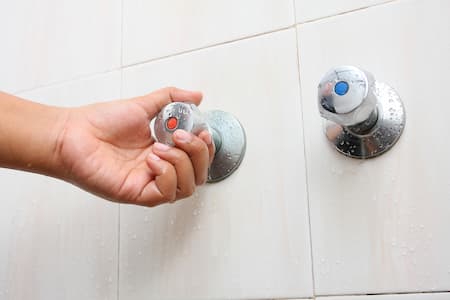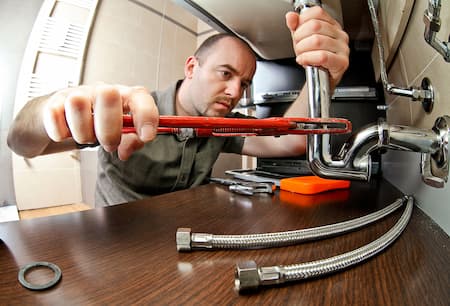Understanding Lifespan: How Long Do Water Heaters Last?
Water heaters play a pivotal role in our daily lives, providing hot water for various household tasks, from showering to washing dishes. However, many homeowners often overlook this essential appliance until they encounter problems. One crucial question that arises is, how long do water heaters last? In this comprehensive guide, we will delve into the lifespan of water heaters, factors influencing their longevity, maintenance tips, and what you can do to ensure your unit serves you well over the years.
Understanding Lifespan: How Long Do Water Heaters Last?
On average, traditional water heaters last between 10 to 15 years. However, several factors can influence the actual lifespan of your unit. These include the type of heater you have (tank vs. tankless), the quality of installation, maintenance practices, and even the water quality in your area.
Types of Water Heaters and Their Lifespans
When considering how long your water heater may last, it's essential first to understand the different types available:
- Lifespan: 10-15 years
- Description: These units store hot water in a tank and are commonly found in many homes.
- Lifespan: 20 years or more
- Description: These systems heat water on-demand and generally have a longer lifespan due to fewer components that may fail.
- Lifespan: 10-15 years
- Description: These energy-efficient units use electricity to move heat from one place to another instead of generating heat directly.
- Lifespan: 20 years
- Description: Utilizing solar energy, these systems can significantly reduce energy costs but require proper installation and maintenance.
Factors Influencing the Lifespan of Your Water Heater
Several factors can affect how long your water heater lasts:
1. Quality of Installation
A poorly installed water heater may lead to premature failures. Always hire reputable plumbing companies near me that guarantee quality work.
2. Maintenance Practices
Regular maintenance can extend your unit's life significantly. Flushing the tank annually to remove sediment buildup is one way to ensure optimal performance.
3. Water Quality
Hard water contains minerals that can accumulate inside the tank and lead to corrosion or scaling. If you live in an area with hard water, consider installing a water softener.
4. Usage Patterns
If your household consumes large amounts of hot water daily (showers, laundry), it may wear out faster Stockton plumbers than a home with minimal usage.
5. Age of Heater
Older models are typically less efficient and more prone to failure than newer ones designed with advanced technology.
Maintenance Tips for Longevity
Ensuring your water heater lasts as long as possible requires some proactive measures:
- Regular Inspections: Schedule yearly check-ups with local emergency plumbers near me.
- Flushing: Perform an annual flush to eliminate sediment buildup.
- Check Anode Rods: Replace corroded anode rods every few years.
Signs It's Time for a Replacement
Even with proper care, there comes a time when replacement is inevitable:
- Leaks or puddles around the base
- Rusty or discolored hot water
- Strange noises coming from the tank
Choosing the Right Plumber for Installation or Repairs
When it comes time for repairs or replacement, finding reliable plumbers is crucial:
Finding Cheap Plumbers Near Me
While cost is always a factor, it's vital not just to go for cheap plumbers; consider their reputation and service quality too.
Best Plumbers Near Me
Look for licensed professionals with positive reviews who offer guarantees on their work.
Plumbing Companies Near Me for Emergency Services
In case of emergencies like leaks or broken heaters at odd hours, search for 24-hour plumbers near me who can respond quickly.
DIY vs Professional Assistance
Many homeowners wonder if they should attempt DIY repairs or call in a professional plumber:
Pros & Cons
| Aspect | DIY | Professional | |-----------------------|------------------------|-----------------------| | Cost | Lower initial expense | Higher expense | | Skill Required | Basic knowledge needed | Expertise guaranteed | | Time | Can take longer | Quicker resolution | | Warranty Coverage | None | Often includes warranty |
While some minor issues might be manageable on your own (like a clogged toilet fix), major repairs should always involve professionals.
The Role of Technology in Modern Water Heaters
With ever-evolving technology, modern units boast features that enhance efficiency and convenience:
Smart Thermostats
These devices allow you to control temperatures remotely via smartphone apps—saving energy and ensuring comfort at all times!

Energy Efficiency Ratings
The Energy Factor (EF) measures efficiency; higher ratings mean better performance at lower costs!
Conclusion: Making Informed Decisions About Your Water Heater
Understanding lifespan considerations for your water heater empowers you as a homeowner! With proper care—like regular maintenance from trusted bathroom sink plumbers—you’ll maximize its longevity while minimizing repair costs over time.
Investing initially in high-quality equipment ensures peace-of-mind down-the-line when those unexpected hiccups arise!
FAQs
How can I prolong my water heater’s life?
Regularly maintain it by flushing sediment buildup annually and checking components like anode rods frequently!
What are signs my heater needs replacing?
Look out for leaks around the base; discolored hot water indicates rusting inside; strange noises signify internal damage!
Is it worth switching from tank-style to tankless?

Can I install my own unit?
While feasible; unless experienced—seeking help ensures safe installations without risking further complications later down-the-line!
How often should I have my heater inspected?
At least once per year! Regular visits catch minor issues before escalating into costly repairs!
By utilizing these insights into understanding lifespan considerations regarding home appliances such as heaters—you’re now equipped with knowledge ensuring optimal performance while avoiding unnecessary headaches!